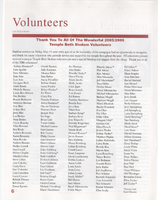Search the Special Collections and Archives Portal
Search Results
Murl Emery Photograph Collection
Identifier
Abstract
The Murl Emery Photograph Collection consists of seventeen black-and-white photographic reprints of ferries and recreational activities near Searchlight, Nevada on the Colorado River taken from approximately 1910 to 1946, and reprinted from approximately 1970 to 2004.
Archival Collection
Thomas J. Osborne Photograph Collection
Identifier
Abstract
The Thomas J. Osborne Photograph Collection (approximately 1890-1930) consists of black-and-white photographic prints, negatives, and slides. Images depict the family of Thomas J. Osborne, his law office, the family home, and views of the town of Pioche, Nevada and surrounding areas. Several images depict local mines and unidentified mine workers.
Archival Collection
Geneva Stark Merwin Photograph Collection
Identifier
Abstract
The Geneva Stark Merwin Photograph Collection features photographic prints and negatives of locations throughout Pahrump, Nevada between 1941 and 1942. Primary locations include a Pahrump school and Pahrump Ranch, as well as locations in local fields and mountains. The photographs capture candid scenes of people walking to school and feeding animals.
Archival Collection
Ernest Mitchell Pratt Photographs
Identifier
Abstract
The Ernest Mitchell Pratt Photographs (approximately 1932-1936) consist of black-and-white photographic prints, signed and unsigned, taken by Pratt while Hoover Dam was under construction. Many prints are signed and mounted, and two are noted as award-winning photographs shown at the Annual International Salon of Camera Pictorialists in Los Angeles, California. There are additional working prints included alongside the final prints for most of the scenes. Also included in the collection is one small photograph of Pratt. This collection was formerly known as the Price Photograph Collection.
Archival Collection
Paul May Photograph Collection
Identifier
Abstract
The Paul May Photograph Collection (1969) consists of black-and-white and color photographic prints. The images primarily depict Nevada Assemblyman Paul May alongside Nevadan senators and congressmen, including Senator Paul Laxalt. Other images are portraits of May.
Archival Collection
Clarence Ray Photograph Collection
Identifier
Abstract
The Clarence Ray Photograph Collection (approximately 1930-1960) consists of black-and-white photographic prints and negatives of Clarence Ray, casino scenes of people playing table games, and images of Ray with black activists in Las Vegas, Nevada.
Archival Collection

Transcript of interview with Dorothy George by Claytee White, October 13, 2003
Date
Archival Collection
Description
After serving as a nurse in World War II in Hawaii, Okinawa and Japan, Dorothy returned home to Chippewa Falls, Wisconsin. She experienced a particularly bad winter and she set out for California but stopped in Las Vegas to visit the family of her traveling companion, a girlfriend from her home town. The girlfriend returned to Wisconsin and George applied for a nursing license and got it within three days. She never left. Dorothy met her husband while working the night shift at Clark County Hospital. He would come in regularly to assist his patients in the births of their babies. Their occupations and their service in World War II drew them together in a marriage that has lasted over fifty years. From 1949 to this interview in 2003, Dorothy George has seen Las Vegas grow from a town that she loved to a metropolitan area that is no longer as friendly. She reminisces about the Heldorado parades, family picnics at Mount Charleston, watching the cloud formed by the atomic bomb tests, raising six successful children, leading a Girl Scout Troop, and working in organizations to improve the social and civic life of Las Vegas.
Text

Interview with Ernest Benjamin Williams, October 27, 2004
Date
Archival Collection
Description
Text

Edith Fernandez oral history interview: transcript
Date
Archival Collection
Description
Oral history interview with Edith Fernandez conducted by Marcela Rodriguez-Campo and Claytee D. White on September 27, 2018 for the Latinx Voices of Southern Nevada Oral History Project. In this interview, Fernandez discusses her upbringing in Las Vegas, Nevada and growing up in the Charleston Heights neighborhood. She recalls living in a predominantly white community, and the growth of Latinx families in that area. Fernandez talks about her educational experience in the city, her father's involvement with Culinary Worker Union Local 226, and identifying as a Chicana American. Later, Fernandez remembers her involvement with opening the Cambridge Center, working with the Latino Youth Leadership Conference (LVLC), and becoming the District Director for Representative Steven Horsford. Lastly, Fernandez discusses her role as the Associate Vice President at Nevada State College (NSC).
Text

